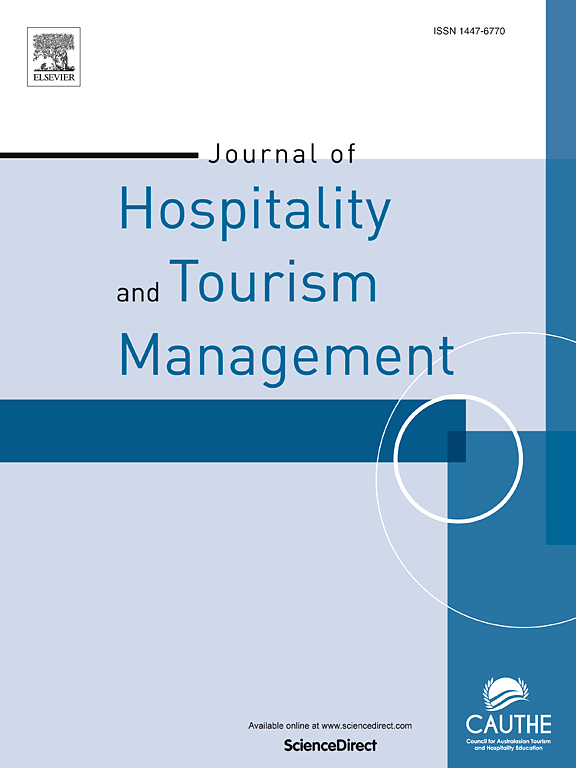孤独动机及其对餐厅消费价值和消费者幸福感的影响
IF 7.6
1区 管理学
Q1 HOSPITALITY, LEISURE, SPORT & TOURISM
引用次数: 0
摘要
独处消费曾被视为不善交际,受到负面评价。由于人口结构的变化和生活方式的选择,越来越多的消费者开始进行独自消费。然而,关于独处消费者如何评价服务的研究却很少。本研究探讨了独处动机(自愿与非自愿)是否会影响独处消费者的价值感知。基于自我决定理论,本研究探讨了自愿或非自愿独处是否会影响消费者对功利价值、享乐价值和显性价值的感知,进而影响消费者的幸福感。数据收集自 538 名 20 岁及以上的韩国消费者,并使用 SPSS 和 AMOS 进行了分析。研究结果表明,自愿(自我决定)独处与功利性消费价值感和享乐性消费价值感呈正相关,而与炫耀性消费价值感呈负相关。研究还发现,享乐型消费价值是预测消费者幸福感的主要因素。研究结果强调了了解不同消费价值对消费者幸福感的细微影响的重要性。这项研究揭示了孤独消费的复杂动态,为以孤独消费者为目标的企业提供了启示。本文章由计算机程序翻译,如有差异,请以英文原文为准。
Solitude motivation and its effect on consumption value and consumer happiness in a restaurant context
Consumption in solitude had been stigmatized as social ineptitude and perceived negatively. Due to the demographic changes and lifestyle choices, more consumers started to engage in solitary consumption. However, there is a paucity of research on how solo consumers evaluate services. This study examines whether solitude motivation (voluntary vs. involuntary) has any effect on value perception of solo consumers. Based on self-determination theory, the study examines whether voluntary or involuntary solitude affects consumers’ perceptions of utilitarian, hedonic, and conspicuous value, which subsequently influence consumer happiness. The data were collected from 538 Korean consumers aged 20 and above and were analyzed with SPSS and AMOS. The finding shows that voluntary (self-determined) solitude is positively related to perceptions of utilitarian and hedonic consumption value and negatively related to perception of conspicuous consumption value. The study also finds that hedonic consumption value is the dominant predictor of consumer happiness. The findings underscore the importance of understanding the nuanced effects of different consumption values on consumer Happiness. This research sheds light on the complex dynamics of solitary consumption, offering insights for businesses targeting solitary consumers.
求助全文
通过发布文献求助,成功后即可免费获取论文全文。
去求助
来源期刊
CiteScore
13.30
自引率
8.40%
发文量
177
审稿时长
45 days
期刊介绍:
Journal Name: Journal of Hospitality and Tourism Management
Affiliation: Official journal of CAUTHE (Council for Australasian Tourism and Hospitality Education Inc.)
Scope:
Broad range of topics including:
Tourism and travel management
Leisure and recreation studies
Emerging field of event management
Content:
Contains both theoretical and applied research papers
Encourages submission of results of collaborative research between academia and industry.

 求助内容:
求助内容: 应助结果提醒方式:
应助结果提醒方式:


